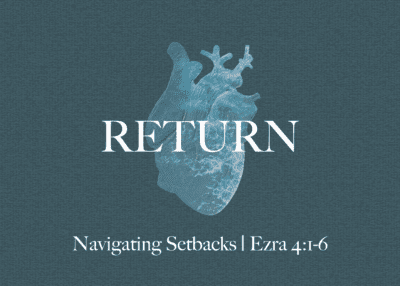Faith is wonderful, and doubt may not always be against it. Sometimes, it is the beginning of learning. New questions can be a good thing—the laying of foundation for faith.
When you hear something—an opinion, an argument, a gauntlet phrase—that makes you doubt what the Bible says, the best thing to do is not always to run away or to fight against it. Sometimes, it is best to pray for God’s help and respond with a question to the proposed assertion or argument.
Jesus frequently asked questions in order to build a relationship. He asked questions to the teachers in the temple (Luke 2:46), to the witnesses coming to see John the Baptist (Matthew 11:7-9), to the Pharisees about the Sabbath and David in the grain fields (Matthew 12:1-7), and even of his own followers as to who they thought he was (Matthew 16:15).
That’s the art of apologetics; using a good question to begin fruitful dialogue, build a relationship, and uncover inaccuracy. When we do this we reflect Christ to others.
Apologetics
Remember that Christ’s truth does not fear an honest investigation. While you might be intimidated by the argument, God’s Word is not. Doubts arising from weak foundations are best addressed with discipline and serious investigative study, much like a detective.
Preach the word; be ready in season and out of season; reprove, rebuke, and exhort, with complete patience and teaching (2 Timothy 4:2).
God’s word calls us to engage in case-making defenses:
In your hearts honor Christ, the Lord as holy, always being prepared to make a defense to anyone who asks you for a reason for the hope that is in you; yet do it with gentleness and respect. (1 Peter 3:15)
1 Peter 3:15 admonishes us to be prepared with an apologia (a prepared case-making defense) to everyone asking me for the hope within with gentleness and fear (reverent respect). For in our choice to engage with the argument, we may win others to Christ through gentleness and respect. It’s not my job to defeat their claim; it is their job to defend it.
You might ask, how might I do this? I want to share six questions, from an article by John Stonestreet, with you that you can use in a situation where you are confronting an assertion or argument that causes some doubt.
1.) What do you mean by that?
Align definition of terms or phrase. Consider, we have similar vocabulary but oftentimes different inherent dictionaries.
Ask yourself, does this claim sound credible? Listening to understand the meaning of terms is of utmost importance and perfectly alright to ask a person to slow down.
2.) How do you know that is true?
Intelligent belief demands reasons. Too often, assertions are mistaken for arguments. There’s a vast difference between the two.
An assertion is a definitive statement made about the nature of reality. An argument is presented to back up an assertion.
By asking “how do you know that’s true?” you’ll move the conversation beyond two people merely asserting what they believe to why those assertions should be taken seriously. This step helps diagnose clarity and credibility of the claim.
3.) Where did you get this information?
Once arguments are offered, it’s important to ensure the arguments are valid. Our directive is to discern and recognize when an explanation is not supported by evidence!
Compel people to provide facts in support of their argument. Maintain focus on the central issue of the claim, with dignity and respect. Be on guard for aggressiveness and defensiveness. The intention is to advance clear thinking apart from hostility.
4.) How did you come to this conclusion?
Behind the person you are talking with, behind his or her convictions, is a story. If you know that story, it may make more sense why they don’t find your views plausible.
Plus, it’ll help you remember the person you’re talking with is a real, image-of-God bearing person. Jesus engaged others with questions, not because to win over others but to serve them and bring them closer to him.
5.) What if you’re wrong?
A poor choice can have dire outcomes. Is this a rational philosophy with merit or just empty deception:
See to it that no one takes you captive by philosophy and empty deceit, according to human tradition, according to the elemental spirits of the world, and not according to Christ. (Colossians 2:8)
6.) What if you’re right?
Ideas have consequences that are always worth considering. Is there confidence and assurance of the claim’s validity? Just as Jesus did in conversations, building relationship presides over winning an argument.
All Scripture is breathed out by God and profitable for teaching, for reproof, for correction, and for training in righteousness, that the man of God may be complete, equipped for every good work. (2 Timothy 3:16-17)
Rely on God’s Word
If you find yourself in this situation, remember the Bible has everything we need to know. Jeremiah admonishes the wise man to boast of God’s wisdom, God’s might, that he understands and knows God:
Let him who boasts boast in this, that he understands and knows me, that I am the Lord who practices steadfast love, justice, and righteousness in the earth. For in these things I delight, declares the Lord. (9:24)
Let’s glorify Christ as we grow and mature in the study of his word to augment our apologia so we are always ready with an answer; even if that answer is a good question, just like our Lord Jesus did.
…whoever speaks, as one who speaks oracles of God; whoever serves, as one who serves by the strength that God supplies—in order that in everything God may be glorified through Jesus Christ. To him belong glory and dominion forever and ever. Amen. (1 Peter 4:11).







